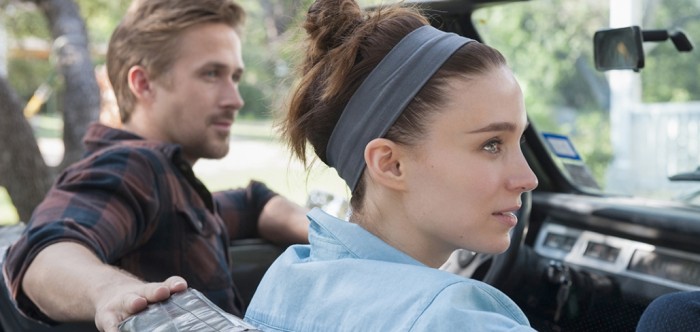'Song To Song' Is Pure, Undiluted Terrence Malick, For Better And Worse [SXSW]
Late in Song to Song, a character strums an old guitar, noting that she could play the same chord for hours straight. Read it as another odd musing in a film filled with them or read it as director Terrence Malick summoning a nugget of self-awareness. Whatever it is, this moment sums up this film (and Malick's recent output): this is the work of an artist willing to do the same thing over and over and over again, not because it makes a crowd-pleasing song, because it pleases him. These are his chords. His monotonous, frustrating, repetitive and undeniably distinctive chords.
Like the rest of Malick's work since 2011's masterful Tree of Life, Song to Song finds the legendary filmmaker behind Badlands, Days of Heaven, and The Thin Red Line escaping further and further into the realm of non-narrative storytelling. These movies may star actors with famous faces, but they're not telling stories. They are feature-length musings, cinematic sculptures carved in the editing room out of countless hours of experimentation, improvisation, and play. Malick's boosters like to call them poetic. His detractors like to call them horseshit. It's easy to understand both perspectives.
There isn't much of a traditional narrative in Song to Song, but what is here orbits the thriving music scene in Austin, Texas, following two struggling songwriters (Ryan Gosling and Rooney Mara), a waitress (Natalie Portman), and the music mogul who enraptures and betrays them all (Michael Fassbender). The film moves back forth through time, with single cuts representing a leap of moments or months. Major events happen offscreen. Relationships step forward and fall apart in glances. There are no individual scenes here – just a cinematic river, asking you to adapt to its current and float along for the journey.
Unfortunately, this particular current has more in common with To the Wonder and Knight of Cups than it does with Malick's earlier work, where his unconventional storytelling ultimately served clear stories about characters whose hopes, dreams, ambitions, and fears were presented as knowable, or at least understandable. Song to Song is inscrutable to the point of frustration, its deliberate blankness numbing. The whole movie is aimless and repetitive, which may be appropriate for a movie about lost people living aimless and repetitive lives, but it does make for an experience that must be endured rather than embraced.
This Malick's fifth film in six years and it often feels like he's brushing up against self-parody. Like so many of our most vital filmmakers, his style is distinctive and his passions clear. He likes people staring forlornly into the distance. He likes characters wandering through fields at magic hour. He likes to use rhetorical questions whispered in vague voice overs in lieu of dialogue. And as you'd expect, Song to Song is a beautiful movie and the musical festival setting allows Malick to find bizarre and often wondrous images in the midst of chaos. Through Malick's lens, raves and make-out sessions lit by glowsticks become primal and unfamiliar – he a detached, dreamy observer.
But that detachment does a disservice to everyone on camera. Despite the presence of some extraordinary actors, the characters themselves simply blur into the background. Malick treats Gosling, Mara, Portman, and Fassbender like the scenery he shoots so beautifully – gorgeous objects that look magnificent on camera. They're not characters. They're just another field shot at magic hour, another lake photographed with the skill of a fine artist. Sometimes, they have whispered conversations, but most of the time, they wander toward the camera, staring blankly into the horizon, and letting voice over supply a suggestion of what they may be thinking or feeling. Good luck learning their names. Good luck understanding why we should care about them.
The bulk of Song to Song takes place in and around large houses and apartment buildings, where our cast stare our windows and quietly muse about their parents in voice over. The movie does find a spark when it actually hits the musical festival scene, mainly because Malick is able to fill the frame with chaos and sound and crowds, allowing his distinctive style to collide with the immediacy of a concert documentary. Watching Michael Fassbender and Rooney Mara improv their way through a massive audience seemingly unaware that they're being filmed is admittedly hypnotic. It's a spark of life missing from much of the movie.
Writing about Song to Song after a single viewing feels like a fool's errand. This is a legitimate art movie, something that was made to be carefully deconstructed and discussed. Its various secrets may lurk under the surface, it's rambling incoherency may serve a larger thematic point that only unlocks itself once you know the larger shape of the piece. Unfortunately, once is enough. Song to Song is one of the great American filmmakers strumming the same chord for an endless 129 minutes. There is surely more to appreciated, more hidden beneath the surface, but its deliberate repetitiveness, its noble unwillingness to be approachable in anyway, makes the thought of a return trip feel unbearable.
/Film Rating: 5 out of 10

